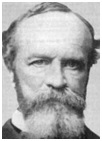|
 |
|
 |
|
|
||
John Dewey - Philosophy and Learning
John Dewey (1859-1952)
American philosopher (pictured right) and educator.
Dewey was a pragmatist... Along with two other Americans, C.S. Peirce (pictured right) and William James (pictured right below), famous for the idea of pragmatism i.e. something is good , if it is
His most famous book is... Democracy and Education (1916).
His tips on learning 1. Improve your problem solving You increase your knowledge by finding solutions to problems. So vital to learning and education are:
These are much more important than memorizing facts. Therefore, a teacher must be a guide and helper. 2. Be creative Creativity and imagination are vital to solving problems - the brilliant scientist Albert Einstein (pictured right) agreed.
3. Satisfy the learner’s needs Education should be student centred with activities to make subjects more interesting and relevant. Learning will be more effective, if it is fun. 4. Learning never stops People learn by continual:
5. Experiment
6. Learning is for life Education and learning must give people a better life not just the means to live (i.e. jobs). 7. Equality of opportunity Everyone must have the same opportunity to:
Free and universal education gives everyone (not just the rich) the freedom to do what they want. Learning should not be a “monopoly of the few”.
Key quotes on learning and wisdom The true is what works. The person who really thinks learns quite as much from his failures as from his successes. Still more important is the fact that the human being acquires a habit of learning. He learns to learn.
Key quote on happiness To find out what one is fitted to do, and to secure an opportunity to do it, is the key to happiness.
Key quotes on education and training Scepticism: the mark and even the pose of the educated mind. We only think when we are confronted with problems.
|
|
|
||
|
|
||
| Copyright © wisdomtowin.com 2025 All Rights Reserved | ||
|









